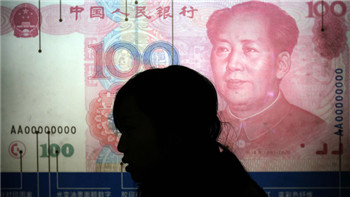(单词翻译:单击)

Back in 2009 the west was desperately seeking green shoots of recovery and paid little attention when Zhou Xiaochuan called for nothing less than a new world financial order.
2009年时,西方国家只顾竭力寻找复苏苗头,却未在意周小川发出的、无异于建构世界金融新秩序的呼吁。
China’s central bank governor proposed replacing the US dollar as the international reserve currency with a global system controlled by the International Monetary Fund. If, as expected, the IMF this month approves the inclusion of the renminbi as a reserve currency, it will mark a small step for Mr Zhou’s 2009 vision but a big move for the renminbi.
中国央行行长当时提议,用国际货币基金组织(IMF)控制下的一个全球体系取代美元作为国际储备货币。如果不出所料,IMF本月将同意把人民币纳为储备货币,对周小川2009年提出的愿景来说,这将是向前迈出的一小步,但对人民币来说却是一个重大举措。
The prospect of China’s currency joining the dollar, euro, yen and sterling in backing the IMF’s Special Drawing Rights — its unit of account, restricted to member governments — has been described as everything from a symbolic ego trip on the part of Beijing to the dawning of a new era.
人民币加入IMF特别提款权(SDR,即分配给会员国的记账单位)货币篮子——目前包括美元、欧元、日元及英镑——的前景得到各种各样的解读:从北京方面得到象征性的自我满足,到一个新时代的开启。
In all probability it will be like many Chinese financial reforms: significant in hindsight, but hard to get excited about in the short term.
几乎可以肯定,这将会像中国的许多金融改革一样:虽然事后看来意义重大,但短期内很难激起热情。
Market enthusiasm for early-stage reforms such as de-pegging the renminbi 10 years ago has given way to ennui as the changes get smaller and China gets bigger. The result is often disappointment in the numbers as China maintains an antipathy to the sweeping changes, accompanied by headline-grabbing figures, beloved of newly installed western executives and politicians.
市场对早期改革(如十年前人民币与美元脱钩)的热情已让位于怠倦情绪,因为中国的体量越来越大、改革的步伐却越来越小。结果就是在数字方面往往令人失望,因为中国始终不愿进行全面的改革。
Even the Shanghai-Hong Kong Stock Connect, a year old this week, was shrugged aside by many, because the absolute numbers involved are relatively small. However, its real significance lies in the fact that it was the first scheme under which foreign investors had been allowed in “blind” — without requiring individual approval.
即便是实施一年之久的“沪港通”,在许多人看来也不是什么值得大书特书的举措,因为与之相关的绝对数字较小。然而,沪港通的真正意义在于,它是首个允许境外投资者直接购买在中国内地上市的公司股票的机制(不需要一个个审批)。
SDR inclusion risks being categorised the same way. That would miss the point. It is not about boosting short-term demand from central banks for renminbi. Rather it is about embedding the currency in the international system and committing Beijing to financial reform.
人民币纳入SDR也有可能被这种不值得大书特书的举措。这就没有抓住问题的关键。人民币纳入SDR的重点不是为了提升各国央行对人民币的短期需求,而是为了将人民币融入国际体系,促使北京方面推行金融改革。
If China were to constitute up to 10 per cent of the SDR basket, reserve managers would need to buy just $28bn of its currency — not a particularly meaningful number compared with the $20bn traded daily in the onshore spot market.
如果人民币占到SDR货币篮子10%的份额,储备管理机构将只需购买价值280亿美元的人民币——相对于在岸即期市场每天200亿美元的交易量,这并非一个特别可观的数字。


